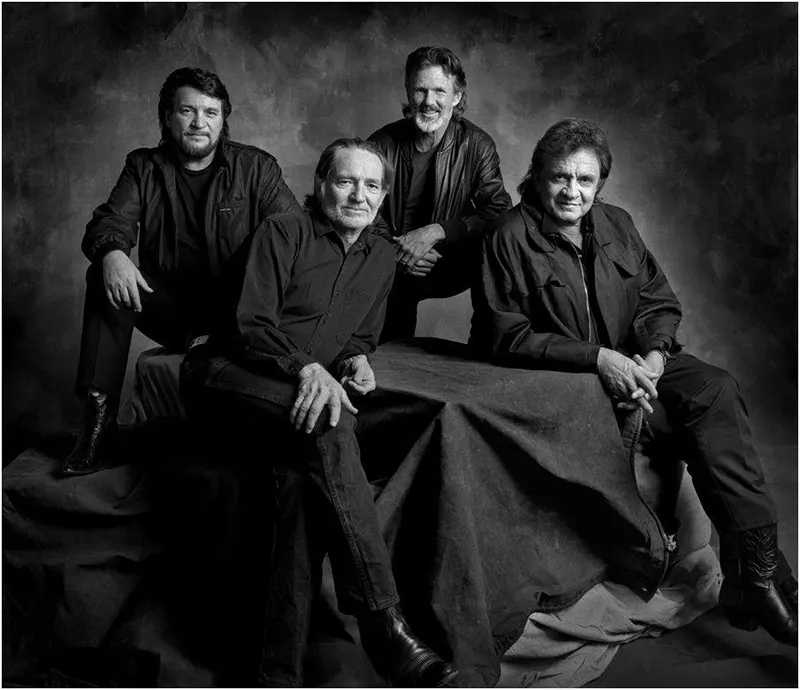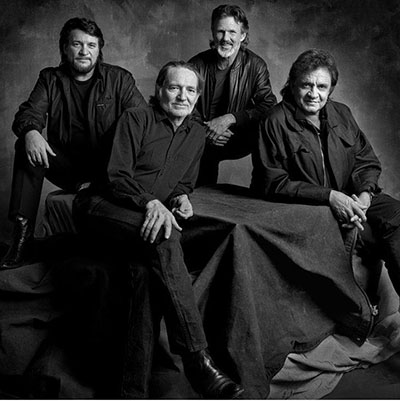
About The Song
“Deportee (Plane Wreck at Los Gatos)” by The Highwaymen. This is a song with a profound and enduring message, a stark reminder of the human cost often hidden beneath the surface of everyday news. For those of us who appreciate music that transcends mere entertainment and delves into the heart of social commentary, this rendition by The Highwaymen carries a particular resonance, amplifying the already powerful narrative of Woody Guthrie’s original.
The Highwaymen, comprised of the legendary Johnny Cash, Waylon Jennings, Willie Nelson, and Kris Kristofferson, were not only masters of storytelling through song but also artists who, in their individual careers, often shone a light on the marginalized and the overlooked. Their coming together was a powerful force, capable of lending significant weight and broader reach to songs with important social messages.
“Deportee (Plane Wreck at Los Gatos)”, while not an original Highwaymen composition, found a fitting home within their repertoire. The song recounts the tragic 1948 plane crash in Los Gatos Canyon, California, which resulted in the deaths of 28 farmworkers being deported back to Mexico. Woody Guthrie, deeply moved by the news reports that failed to even name the deceased, only referring to them as “deportees,” penned this poignant ballad as a tribute to their lost lives and a condemnation of the dehumanizing language used to describe them.
The power of The Highwaymen’s rendition lies in their respectful and heartfelt delivery. Their voices, each carrying its own unique timbre and weight of experience, blend together to give a collective voice to the voiceless. The arrangement is typically simple and direct, often featuring acoustic guitars and understated harmonies, allowing the stark and moving lyrics to take center stage. There’s a sense of reverence in their performance, an understanding of the gravity of the story they are telling.
Consider the themes at the heart of this song. It speaks to the inherent dignity of every human life, regardless of their status or origin. Guthrie’s lyrics, and by extension The Highwaymen’s interpretation, challenge the dehumanization of migrant workers, reminding us that these were individuals with families, dreams, and inherent worth. The refusal of the news media at the time to name them is a stark indictment of societal indifference, a wrong that this song seeks to right, even decades later.
The song also touches upon the themes of injustice and the struggles faced by marginalized communities. It highlights the vulnerability of those who are often unseen and unheard, and the tragic consequences of that invisibility. The imagery of the plane falling from the sky, carrying these unnamed individuals back towards an uncertain future, is both haunting and deeply affecting.
Furthermore, The Highwaymen’s decision to include this song in their body of work speaks volumes about their artistic integrity and their willingness to use their platform to address important social issues. At a time when their commercial success was undeniable, they chose to shine a light on a historical tragedy and to amplify a message of human dignity and remembrance. This act in itself elevates the song beyond a mere historical account; it becomes a timeless plea for empathy and understanding.
“Deportee (Plane Wreck at Los Gatos)” remains a powerful and relevant song today, serving as a reminder of the importance of recognizing the humanity in everyone, regardless of their background or circumstances. The Highwaymen’s rendition honors Woody Guthrie’s original intent, lending their iconic voices to a story that demands to be heard and remembered. It’s a testament to the power of music to not only entertain but also to educate, to provoke thought, and to foster a deeper understanding of our shared human experience. For those who appreciate music with substance and a message that resonates across generations, this track by The Highwaymen is a significant and moving piece.
Video
Lyric
🎵 Let’s sing along with the lyrics! 🎤
The crops are all in, and the peaches are rottenThe oranges are all packed in the creosote dumpsThey’re flying them back to the Mexican BorderTo save all their money then wade back againMy father’s own father, he waded that riverOthers before him have done just the sameThey died in the hills, and they died in the valliesSome went to heaven without any nameGoodbye to my Juan, goodbye RosalitaAdiós mi amigo, Jesus y MaríaYou won’t have a name when you ride the big airplaneAll they will call you will be “Deportee”Some of us are illegal, and others not wantedOur work contracts out, and we have to move onSix-hundred miles to the Mexican BorderThey chase us like rustlers, like outlaws, like thievesGoodbye to my Juan, goodbye RosalitaAdiós mi amigo, Jesus y MaríaYou won’t have a name when you ride the big airplaneAnd all they will call you will be “Deportee”The sky-plane caught fire over Los Gatos CanyonA fireball of thunder, it shook all the hillsWho are all these dear friends scattered like dry leaves?The radio said they were just deporteesGoodbye to my Juan, goodbye Rosalita (Adiós a mi Juan, adiós Rosalita)Adiós mi amigo, Jesus y MaríaYou won’t have a name when you ride the big airplane (No tendrá un nombre en aquel aeroplano)All they will call you will be “Deportee” (Le van a poner “Deportee”)Adiós a mi Juan (Goodbye to my Juan, goodbye Rosalita)Adiós RosalitaAdiós mis amigos, Jesus and Maria (Adiós mi amigo, Jesus y María)No tendrá ningún nombre en el aeroplano (You won’t have a name when you ride the big airplane)El nombre que le van a poner (All they will call you)Va a serDeportee
